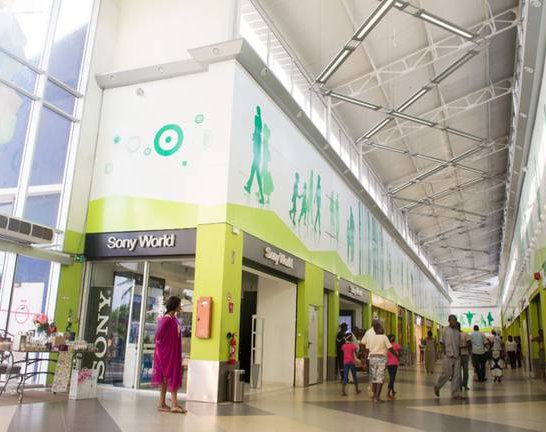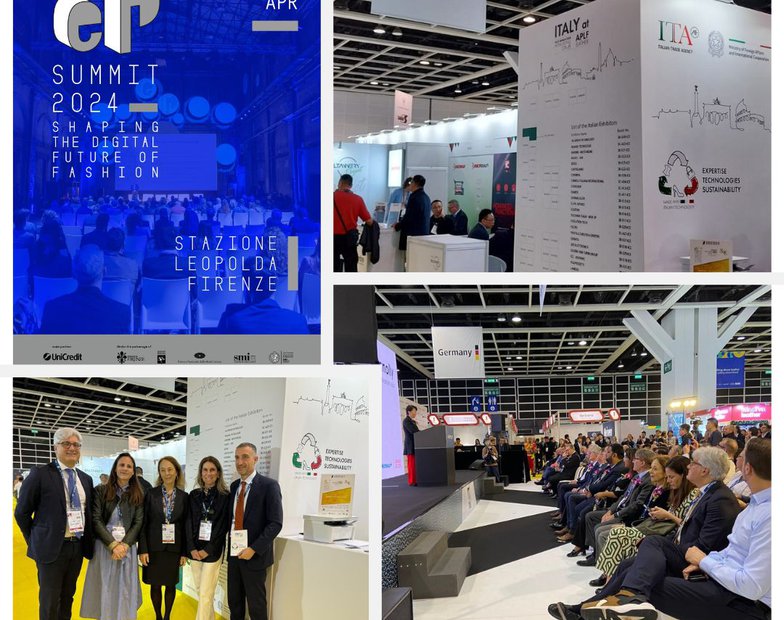Côte d'Ivoire is francophone West Africa’s economic hub attracting fashion e-commerce and event entrepreneurs from across the sub-region. Global brands like Tommy Hilfiger and Mango have opened stores in the country’s commercial capital Abidjan as malls continue to be built. Local designers, multi-brand retailers and manufacturers have established ventures around which a unique business ecosystem is evolving. [The African Fashion Hub Punching Above Its Weight - BoF]
Companies that have the potential to shape the business ecosystem around them usually decide to cluster around others in the biggest regional fashion capital but, occasionally, the most exciting ones emerge in unexpected locations.
“The reason why I’ve decided to anchor Birimian in Côte d’Ivoire is because I really see the potential of Abidjan being the capital of African creative [expression], the same way as Paris is the international city for fashion and culture,” said Laureen Kouassi-Olsson, founder and chief executive of Birimian Ventures, an investment firm she founded in 2020 dedicated to developing African luxury brands.
Over the past two decades, mega-cities in South Africa, Nigeria, Egypt and Kenya have emerged as the most prominent fashion capitals of Africa, serving as industry hubs dominating the wider economies of their respective sub-regions. Until recently, Côte d’Ivoire’s commercial capital Abidjan didn’t even register as being among the next tier of cities in emerging fashion markets like Senegal, Morocco, Angola, Tanzania or Ghana.
But thanks to fashion entrepreneurs with a pan-African vision focused on international trade like Birimian’s Laureen Kouassi-Olsson and Moulaye Tabouré, founder of e-commerce platform Afrikrea, that is starting to change.
“The reality is, when you look at Côte d’Ivoire, it’s a good example of how African fashion is diverse and unique,” Kouassi-Olsson added, referring to the country also known as Ivory Coast.
Like Kouassi-Olsson, Tabouré is a well-travelled executive who chose Côte d’Ivoire to base his business over more obvious alternative locations in Africa.
Having grown up in Mali, Tabouré worked in France and other countries before setting up his e-commerce platform in Abidjan in 2016. The fashion tech entrepreneur, who according to Crunchbase data has so far secured $8.4 million in funding and grown his platform to reach sellers from 47 out of 54 African countries, recently changed Afrikrea’s business model from a pure marketplace to an all-in-one SaaS solution known as Anka.africa.
Kouassi-Olsson’s route to Abidjan was through a career in global finance. Born in Côte d’Ivoire, she specialised in mergers and acquisitions in London before relocating to Paris to pursue private equity. Six years ago, she moved back to the continent and launched her own firm focused on the fashion sector, inking a partnership with Paris-based private equity firm Trail Capital in 2022 to provide annual investment of €5 million (approximately $5 million) to a portfolio of African brands.
Though her company is headquartered in Côte d’Ivoire, it is revealing that only three of the ten brands selected last year for Birimian’s accelerator programme are based in that country: Loza Maléombho, who was born to Ivorian parents in Brazil and raised between Côte d’Ivoire and the US, Simone Sidibé and Gina Kakou-Marceau’s namesake label Simone and Elise and Aristide Loua’s Kente Gentlemen.
The seven others selected last year are designers from other nations including the giants of the continent Nigeria and South Africa. It is a similarly diverse group of African nationalities in this year’s crop of designers for the accelerator. This seems to underscore Côte d’Ivoire’s position as an emerging centre for fashion enterprises with regional or global ambitions.
But that is not to say that its domestic market isn’t attractive to global fashion brands looking to expand on the continent. Far from it.
Francophone West Africa’s Economic Hub
Côte d’Ivoire, a country of over 27 million people, is francophone West Africa’s economic hub and exerts significant influence in the region. Though its political capital is Yamoussoukro, Abidjan is the centre of business and a far bigger city with over five million residents.
The international community has praised Côte d’Ivoire’s swift recovery from the 2011 post-election conflict that claimed 3000 lives and paralysed the economy for many months. Only a decade earlier, experts had predicted a sluggish return of investors, most of whom shut shop and fled to safer shores. Other forecasts suggested some investors might never come back.
Laureen Kouassi-Olsson, founder and chief executive of Côte d'Ivoire-based investment firm Birimian Ventures focused on African luxury brands. (Antoine Doyen)
“That was exactly our fear because at the end of the war everything was down and prospects looked gloomy for a quick recovery. However, it worked out like a miracle,” said Solange Amichia, chief exeucitve of the Centre for the Promotion of Investments in Côte d’Ivoire (CEPICI).
Indeed, the market has largely overcome that period of instability. Côte d’Ivoire emerged as one of the most robust economies in Africa, growing at an annual average rate of 8 percent between 2012 and the pre-pandemic peak of 2019, according to the World Bank. Today it is by far the largest economy in French-speaking West Africa.
“Within a short period of time every sector had people coming and knocking for investment opportunities,” Amichia added.
One of those sectors was retail. Within five years, four multimillion-dollar shopping malls saw the light of the day in Abidjan. Existing shopping centres underwent major upgrades as they geared up for impending competition from the new players.
Before the war, Côte d’Ivoire had already started emerging as an attractive destination for foreign investment thanks in part to its relatively prosperous consumer base.
Today, the World Bank places it among the top third of all African countries in terms of GDP per capita ranking. Its infrastructure is also relatively reliable compared to some of its neighbours. Business owners don’t typically need to rely on private generators to power malls like in Nigeria, for example, or in boreholes to provide potable water for shops and restaurants like in Ghana.
It is therefore unsurprising that the crisis didn’t scare away international brands like Mango, Tommy Hilfiger, Levi’s, Aldo, Lacoste and Yves Rocher, which have thriving outlets at Cap Sud, Cap Nord, Sococe and La Djibi — the four long-established malls in Abidjan owned by Prosuma Group.
Prosuma is one of the country’s biggest retail investors. Founded in 1966 by Abou Kassam and Karim Fakhry, it counts Adnan Houdrouge of Mercure International as a shareholder. Mercure, in turn, is the local joint-venture partner for brands like Tommy Hilfiger, which opened a shop in Abidjan last year.
Other shopping centres have been entering the market too. Turkish denim wear brand Colin’s chose to open its first sub-Saharan African store in Cosmos, a new mass market mall and emerging competitor of Prosuma Group properties. Built in 2018 by British real estate investment company HC Capital Properties and Lebanese group Sarada, Cosmos is operated by real estate service firm Cushman & Wakefield.



